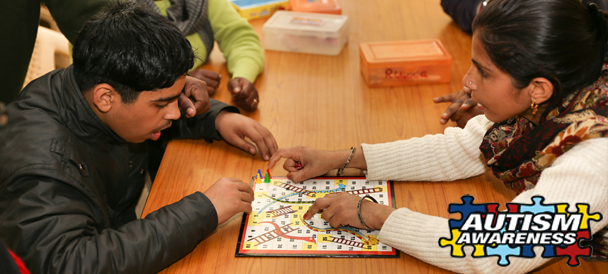I heard of “Kay” from a friend. Kay was struggling with her daughter and was worried that her daughter might have a disability. I offered to call her to see if there was anything I could do to help.
When she came to see me she kept saying, “It is my fault, it is my fault! It is all my karma, my bad karma.”
I told her that she should not think that way and explained that as a Christian I believed that her daughter is made in the image of God and is precious in His sight.
“WHAT!!!!! What are you talking about? How can you say that? I think she is like this because of me, because of what I have done in my past life.”
This story, as recalled by the director of In His Image Center, is common in India and around the world. Children are diagnosed with disabilities and a family’s world is turned upside down. Parents become depressed, struggling to understand how this could happen to them. Members of the community do not understand and so parents are wrongfully blamed and children are neglected.
Fatalism
“Nothing can be done. Let him live out his karma.” Having a disability in India means that few people have hope for the future of that child. What potential could a child with autism have? Developmentally, they are far behind their peers. They struggle with communication and social skills. Unable to effectively communicate, some children continuously soil themselves. Others are ‘misbehaved’ because they cannot sit still or are prone to unexpected tantrums. What hope is there for children with such severe deficiencies? Most people expect that a child with autism will be a drain on their family’s resources forever and they will never be able to contribute to society. That they simply have no potential.
It’s His Karma
Due to the idea of rebirth and karma, many people in India believe that autism is due to one’s bad karma, because of the wrongs an individual or their family committed in a previous life. The family is then viewed as affected by a curse, bringing great shame to the entire family.
There are also social stigmas about autism in India because children with autism often look normal but do not behave ‘properly’. Repetitive behavior is common amongst children with autism. They can sometimes be observed rocking back and forth, hitting themselves, or humming the same tune over and over in an otherwise silent room.
Because of these socially unacceptable behaviors and the negative worldviews associated with disabilities, some children with autism spend long hours locked away in their homes, and few services exist to help these children develop.
Struggle Against Discrimination
There is lack of awareness about autism in Indian society. Parents often ignore their child’s symptoms, and doctors have been known to misdiagnose the disorder. In India there are strong social stigmas related to the dysfunctions of the mind, therefore efforts are made to maintain a ‘normal’ identity as long as possible. As soon as an individual has the word autism attached to their name they face discrimination.
In schools, children with autism face discrimination from teachers and peers. Most special education teachers in India are not trained to care for the needs of children with autism. So, despite the Right to Education Act, and the National Trust Act, children with autism are often neglected by teachers and sometimes denied admission by school administrators. Children with autism are bullied by their peers because they lack normal social skills and can be easy targets.
In His Image is demonstrating to society that children with autism have God-given potential and worth. Come back on Wednesday to hear more of Kay’s story and how the In His Image Center is helping people to see the God-given potential of children with autism.



Leave A Comment